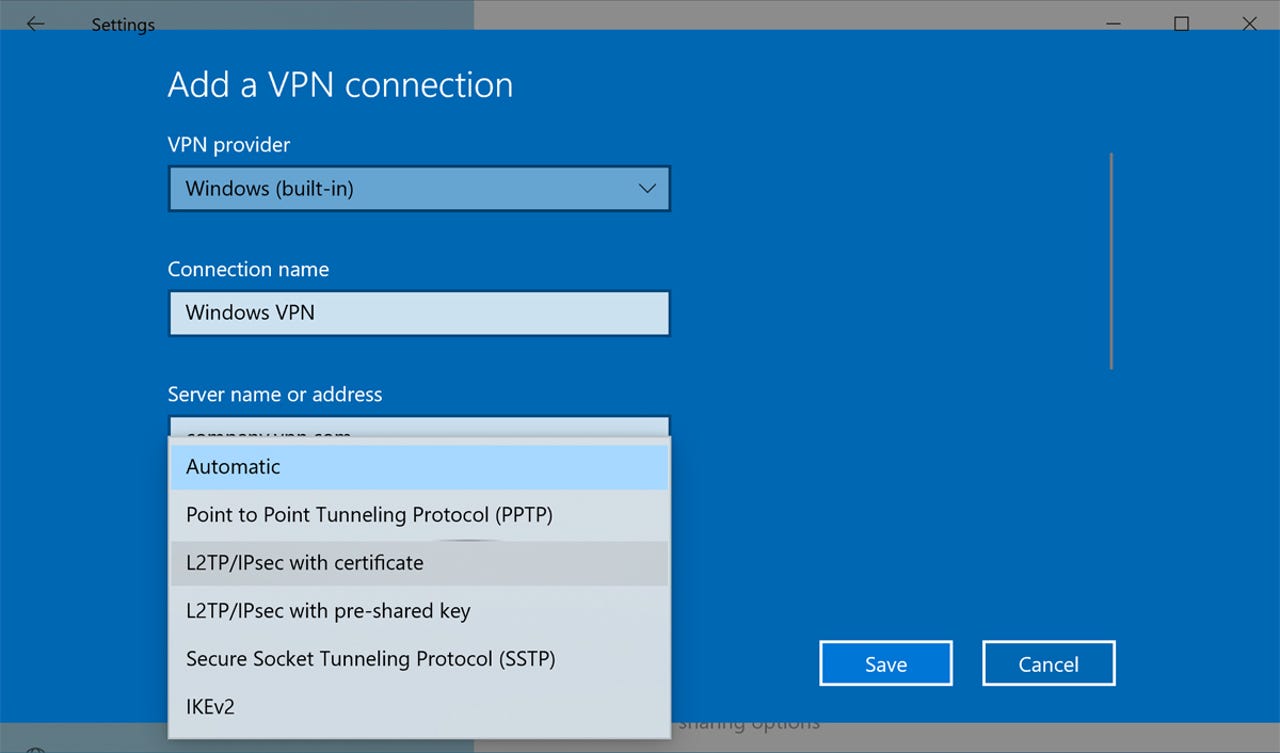How do I setup a VPN on my laptop Windows 10?
Summary of the Article
Does Windows 10 have a built-in VPN?
How do I enable VPN on my laptop Windows 10?
How can I get a free VPN on my laptop?
How do I add a VPN connection?
How do I activate VPN on my laptop?
How do I know if I have a VPN on my laptop?
Is it safe to use a free VPN?
How do I enable VPN on my Network?
How do I connect to a VPN for the first time?
Should I enable VPN on my laptop?
Questions and Answers
Question 1: Does Windows 10 have a built-in VPN?
Answer: Windows 10 has built-in VPN support that can be manually configured. However, it doesn’t support OpenVPN.
Question 2: How do I enable VPN on my laptop Windows 10?
Answer: To enable VPN on Windows 10, go to the Settings menu, select Network & Internet, choose VPN from the left menu, and click Add a VPN connection.
Question 3: How can I get a free VPN on my laptop?
Answer: Here are some of the best free VPN options: Privado VPN, Proton VPN Free, Windscribe, Atlas VPN, Hide.me, and Hotspot Shield Basic.
Question 4: How do I add a VPN connection?
Answer: To add a VPN connection on an Android device, go to Settings, click on Network & Internet, and select VPN. Then, click on Add VPN, fill out the necessary information, and save it.
Question 5: How do I activate VPN on my laptop?
Answer: To activate VPN on your laptop, go to the Windows Settings page, select Network & internet, choose VPN, and click on Connect for the desired VPN connection.
Question 6: How do I know if I have a VPN on my laptop?
Answer: On a PC, you can check under your WiFi settings if there is a VPN/proxy showing up. On a Mac, look for a black box with four grey lines and one white line in the top status bar.
Question 7: Is it safe to use a free VPN?
Answer: Free VPNs are more likely to track your data compared to paid VPNs. Only 28% of free VPN services don’t track users’ online activity, while 65% of paid VPN providers don’t track.
Question 8: How do I enable VPN on my Network?
Answer: To enable VPN on an Android smartphone, go to the Settings menu, tap on Wi-Fi & Internet or Wireless & networks, select VPN, and tap on the plus sign to add a new VPN profile.
Question 9: How do I connect to a VPN for the first time?
Answer: Download the app or software for the chosen VPN service on all devices, log in to your VPN account, and connect to a VPN server using the app or software.
Question 10: Should I enable VPN on my laptop?
Answer: Using a VPN is important for online privacy, especially when using public Wi-Fi, as it prevents cyber snoops from tracking your online activity.

Does Windows 10 have a built in VPN
But if an app doesn't suit you, Windows 10 has built-in VPN support that can be manually configured. The OS doesn't support OpenVPN however, so we recommend choosing from L2TP/IPSec, SSTP, or IKEv2.
CachedSimilar
How do I enable VPN on my laptop Windows 10
Set Up VPN on Windows 10Click the Windows Start button and select the Settings cog.Under Windows Settings, select Network & Internet.Select VPN from the left menu, then at the right, click Add a VPN connection.In the dialog box that opens:Set VPN provider to "Windows (built-in)".Set Connection name to "UWSP VPN".
Cached
How can I get a free VPN on my laptop
Our complete list of the very best free VPNs:Privado VPN. The best free VPN available today.Proton VPN Free. Very secure with unlimited data.Windscribe. Generous on data, and secure too.Atlas VPN. Great speeds, and tons of data for Mac users.Hide.me. Flexible and powerful free VPN.Hotspot Shield Basic.
How do I add a VPN connection
Set Up a VPN on an Android Device
Go to “Settings” and from there click “Network & Internet” then “Advanced” and, finally, “VPN.” Click “Add VPN.” Fill out your VPN's “Name” and “Server” and hit save. Click on your newly added VPN profile and fill out the “Account” and “Password” fields then click “Connect.”
Cached
How do I activate VPN on my laptop
Connect to a VPN from the Windows Settings page:Select Start > Settings > Network & internet > VPN.Next to the VPN connection you want to use, select Connect.If prompted, enter your username and password or other sign in info.
How do I know if I have a VPN on my laptop
PC: Check under your WiFi settings, to see if there is a VPN/proxy showing up. Mac: Check your top status bar. If you have a VPN/proxy set up, there will be a black box with four grey lines and one white line. If you cannot see this box, you do not have a VPN set up.
Is it safe to use a free VPN
Free VPNs are more likely to track your data. The CSIRO study said 65 percent of paid VPN providers didn't track users' online activity, but only 28 percent of free services did the same. Why Free services need to make money somewhere.
How do I enable VPN on my Network
Set up a VPN on Android smartphonesOpen the Settings menu of the phone.Tap on Wi-Fi & Internet or Wireless & networks.Tap on VPN.Tap on the plus sign at the top right corner.Enter the necessary information like the server address, username, and password.
How do I connect to a VPN for the first time
Download the app or specific software for your chosen VPN service on all of your devices. Log in to the account you made when signing up for the VPN service. Depending on what service you selected, you might be asked for a security key or two-step authentication code. Once in the app, connect to a VPN server.
Should I enable VPN on my laptop
VPN use is important for online privacy whenever you're logging into the internet from a public spot because cyber snoops could track your online activity when you are using public Wi-Fi, whether it's on your computer or your mobile device.
Can I get a VPN for free
Proton VPN offers free access to VPN servers in the United States, Netherlands, and Japan. The Proton VPN free plan has a strict no-logs policy backed by the Swiss data privacy laws. Additionally, Proton VPN does not apply any bandwidth, duration, or speed limits to free users.
Do I need a VPN on my laptop
VPN use is important for online privacy whenever you're logging into the internet from a public spot because cyber snoops could track your online activity when you are using public Wi-Fi, whether it's on your computer or your mobile device.
Should you keep VPN on all the time
The short answer is: Yes, you should keep your VPN on at all times. By encrypting the traffic that you send and receive, VPNs can prevent your personal data from being intercepted by third parties. This data includes your web browsing history, physical location, IP address, and more.
Which VPN is safest
Top 6 best most secure VPNs: shortlistNordVPN – the most secure VPN.Surfshark – top price-to-quality secure VPN.IPVanish – safe VPN with advanced features.ExpressVPN – premium VPN for security and privacy.CyberGhost – VPN with reliable security features.PureVPN – safe VPN with an always-on audit.
What is required to configure VPN
VPN client software must work on all user devices, which can prevent VPN security breaches. VPN devices must also be compatible and interoperable with appliances, concentrators and servers. VPN protocols must work end to end through firewalls, routers and switches.
What is VPN and how do you configure it
A VPN connection establishes a secure connection between you and the internet. Via the VPN, all your data traffic is routed through an encrypted virtual tunnel. This disguises your IP address when you use the internet, making its location invisible to everyone. A VPN connection is also secure against external attacks.
Does VPN start automatically
The VPN auto-connect feature automatically connects you to a VPN server so you won't browse the internet without protection. It can safeguard your data from snoopers and hackers taking advantage of public Wi-Fi and other unsecured networks.
What should I know before using a VPN
6 things to consider when choosing a VPNA free VPN is, in fact, not free.Security experience of the vendor.All reviews are not independent.VPN provider's home country matters.Check your VPN's privacy policy.Thousands of servers may be a security risk.
When I shouldn’t use VPN
Why shouldn't I use a VPNA VPN might reduce your connection speed even if your internet service provider isn't throttling your speed;Using a VPN on mobile will increase your mobile data usage;Using a VPN is considered an offense in some countries, and you can get fined or even be incarcerated for it.
Is it OK to leave VPN on all the time
The short answer is: Yes, you should keep your VPN on at all times. By encrypting the traffic that you send and receive, VPNs can prevent your personal data from being intercepted by third parties. This data includes your web browsing history, physical location, IP address, and more.
Which is the safest free VPN
A Closer Look at the Best Free VPNs of 2023Hotspot Shield – Best Overall.500 MB Daily Data Usage Limit.PrivadoVPN – Best Free VPN with Unlimited Speeds.Atlas VPN – Best Free VPN for Privacy.Surfshark – Best Encryption.TunnelBear – Best Free VPN for Beginners.Windscribe VPN – Best Free VPN for the Security.
Is there a totally free VPN for Windows
Atlas VPN
As one of the best free VPNs for Windows, Atlas VPN is surely going to satisfy some users. I like its Windows app that's very easy to use and is welcoming for the new user. In the app, you'll find that Atlas VPN offers some security features typical for free providers.
Do you have to pay for a VPN
The only strength of a free VPN is that it's free. People typically don't expect high-end service when they get something without paying. But if you pay for a subscription, you can expect better speeds, extensive and advanced features, solid encryption, and 24/7 support.
What is the downside of using a VPN
We've summarized the main disadvantages of using a VPN below: Some VPNs may slow your connection speed and you could experience connection drops. You could be blocked from using particular services or websites, like Netflix. VPNs are illegal in a few countries and could give you a false sense of (legal) impunity.
Should I use a VPN on my home Wi-Fi
Without a VPN, your IP address is exposed. Your IP address and the IP addresses of all the devices connected to your home Wi-Fi can be stolen by cybercriminals to track your location, right down to the street level, if they want to. VPN changes your IP by routing your traffic via a remote server.



0 Comments